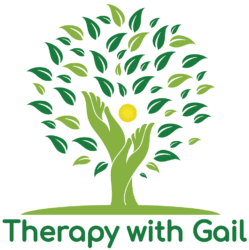In today’s fast-paced world, technology has become an integral part of our daily lives. From smartphones to social media platforms, we are constantly connected, inundated with information, and bombarded by notifications. While technology has undoubtedly revolutionized the way we communicate, work, and access information, its omnipresence also comes with a price – heightened levels of anxiety and stress.
Brene Brown, a renowned researcher on vulnerability and shame, and John Delony, a mental health expert, join forces to shed light on the profound impact of technology on our mental well-being. In this therapeutic exploration, we delve into the intricate web of technology, social media, and constant connectivity, uncovering how they contribute to the rising tide of anxiety in our society.
The Digital Deluge: Understanding the Overload
Technology has opened up endless possibilities for connection and productivity, but it has also unleashed a tidal wave of digital overload. With smartphones always within arm’s reach and notifications incessantly vying for our attention, it’s easy to feel overwhelmed and mentally exhausted. The relentless barrage of emails, messages, and social media updates can leave us feeling perpetually on edge, unable to find respite in an increasingly noisy world.
Brene Brown reminds us that vulnerability lies at the heart of our human experience. When we’re constantly plugged into the digital realm, we lose touch with our vulnerability, numbing ourselves to discomfort and seeking refuge in the distraction of screens. This avoidance only exacerbates our anxiety, as we become disconnected from our true selves and the present moment.
The Comparison Trap: Navigating the Perils of Social Media
Social media platforms offer a window into the lives of others, but they also foster a culture of comparison and perfectionism. John Delony emphasizes that our incessant scrolling feeds into a relentless cycle of comparison, where we measure our worth against curated highlight reels and filtered snapshots of others’ lives. This constant comparison erodes our self-esteem and fuels feelings of inadequacy, contributing to anxiety and depression.
Moreover, the anonymity of the online world can embolden individuals to engage in cyberbullying and harassment, further exacerbating our anxiety and sense of insecurity. Brene Brown underscores the importance of cultivating empathy and compassion in our digital interactions, fostering online communities built on kindness and understanding rather than judgment and cruelty.
Finding Balance: Cultivating Healthy Relationships with Technology
While the pervasiveness of technology may seem daunting, there are steps we can take to reclaim control over our digital lives and foster healthier relationships with technology. John Delony encourages us to set boundaries around our technology use, carving out designated times for unplugging and engaging in activities that nourish our minds and souls. Whether it’s spending time in nature, practicing mindfulness, or connecting face-to-face with loved ones, prioritizing moments of offline connection can help us find balance in an increasingly digital world.
Brene Brown reminds us of the power of vulnerability in cultivating authentic connections both online and offline. By embracing our imperfections and sharing our struggles with trusted friends and family, we can break free from the facade of perfection perpetuated by social media and forge deeper, more meaningful relationships built on honesty and empathy.
In conclusion, while technology undoubtedly offers countless benefits, it also poses significant challenges to our mental well-being. By recognizing the impact of technology on anxiety and adopting strategies for fostering healthier relationships with technology, we can navigate the digital storm with resilience and grace, reclaiming control over our lives and prioritizing our mental health in an increasingly interconnected world.
Read more about the types of anxiety and our useful guide on our anxiety page


